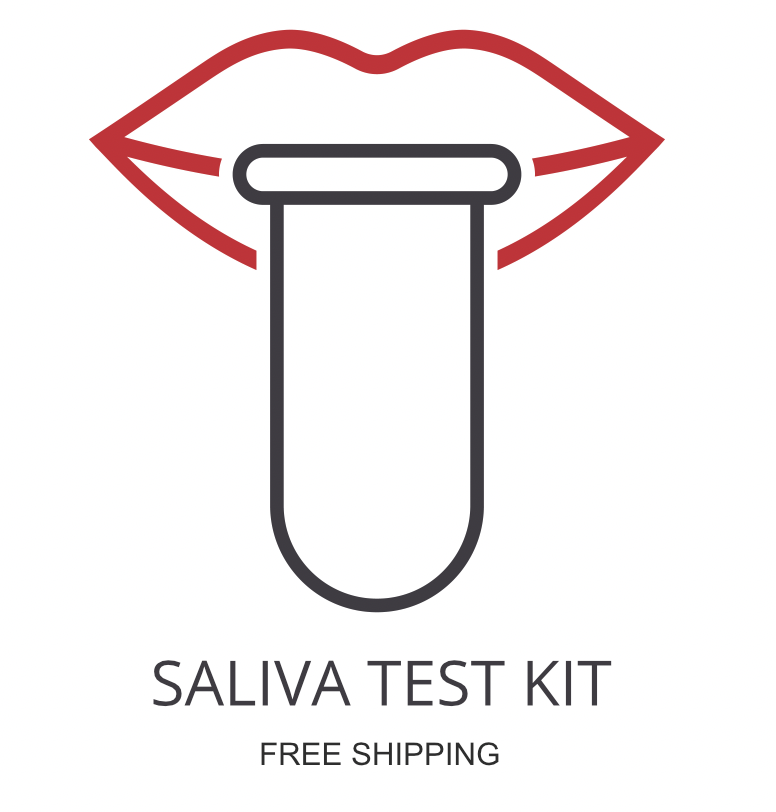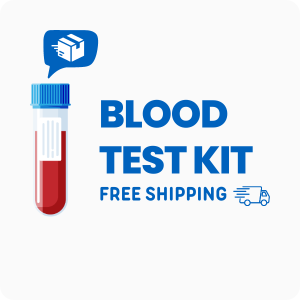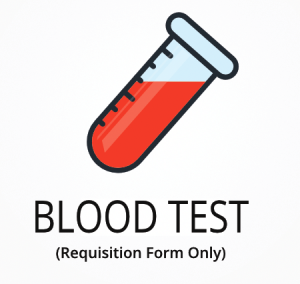Ordering the Salivary Hormones Test by Vibrant America
The Salivary Hormones Test by Vibrant America helps measure hormone levels that can affect energy, mood, sleep, memory, and body weight. This test checks for imbalances in estrogen, progesterone, testosterone, DHEA-S, and cortisol, which can be linked to symptoms like fatigue, hair loss, hot flashes, and trouble concentrating. Interestingly, saliva testing can show hormone patterns throughout the day, which blood tests may not always reveal.
Ordering this test can help you:
- Track hormone changes that may be linked to mood swings or memory problems
- Identify patterns in cortisol that relate to stress or sleep issues
- Check for hormone shifts that may affect weight, muscle, or water retention
- Monitor hormone levels that can impact fertility or menstrual cycles
- Spot early signs of hormone imbalance before symptoms get worse
Who Should Consider Hormone Imbalance Testing
People who notice changes like feeling tired all day, having trouble sleeping, or experiencing sudden mood changes may benefit from this test. For example, someone who has been feeling more anxious, has noticed hair thinning, and is struggling to focus at work might find answers by checking their hormone levels.
Ordering this test may also be helpful if you:
- Have irregular periods or strong PMS symptoms
- Experience hot flashes or night sweats
- Notice a drop in sex drive or changes in weight without changing your diet
- Feel more forgetful or have trouble concentrating
- Have unexplained headaches that seem to follow a monthly pattern
Testing can help you find out if hormone changes are causing symptoms like fatigue, mood swings, or sleep problems. Delaying this test could mean missing the chance to spot hormone shifts early, which may make it harder to manage symptoms later.
Preparing for Saliva Hormone Panel Collection
Fasting is not required for this test, but it is best to avoid eating, drinking, or brushing your teeth for at least 30 minutes before collecting your saliva sample. Always go by any instructions your doctor or healthcare provider gives you to make sure your sample is collected the right way and your results are as helpful as possible.
Labs Included When Ordering Your Salivary Hormones Test by Vibrant America
| Test Name | Reference Range | What This Marker Means | Low and High Levels of Salivary Hormones |
|---|---|---|---|
| Estradiol (E2) | 1.0–4.0 pg/mL (pre-menopausal, follicular); 0.5–1.7 pg/mL (post-menopausal) | Estradiol is a main estrogen hormone that helps control menstrual cycles, bone strength, and mood. It is important for both women and men. |
High levels mean possible estrogen dominance, which can cause heavy periods, weight gain, or breast tenderness.
Low levels mean possible menopause, bone loss, or mood changes. |
| Estrone (E1) | 0.5–2.2 pg/mL (pre-menopausal); 0.2–1.0 pg/mL (post-menopausal) | Estrone is another type of estrogen, often higher after menopause. It helps balance other estrogen hormones in the body. |
High levels mean possible risk for estrogen-related symptoms or hormone imbalance.
Low levels mean possible low estrogen symptoms, such as dry skin or hot flashes. |
| Estriol (E3) | 0.5–5.0 pg/mL (non-pregnant) | Estriol is a weaker estrogen, mostly found during pregnancy, but also helps balance other estrogens in non-pregnant people. |
High levels mean possible hormone imbalance or pregnancy.
Low levels mean possible low estrogen or hormone deficiency. |
| E3/(E1+E2) Ratio | >1.0 | This ratio compares estriol to the sum of estrone and estradiol, helping to show estrogen balance and possible risk for hormone-related symptoms. |
High levels mean estriol is higher than other estrogens, which may lower risk for some estrogen-related issues.
Low levels mean estriol is lower, which may increase risk for estrogen dominance symptoms. |
| Progesterone (Pg) | 30–100 pg/mL (luteal phase); 5–20 pg/mL (follicular phase); <10 pg/mL (post-menopausal) | Progesterone helps prepare the body for pregnancy and balances the effects of estrogen. It also supports sleep and mood. |
High levels mean possible pregnancy or hormone therapy.
Low levels mean possible trouble with ovulation, irregular periods, or sleep problems. |
| Pg/E2 Ratio | >100 (luteal phase); 50–100 (follicular phase) | This ratio shows the balance between progesterone and estradiol, which can affect symptoms like PMS, mood swings, or irregular cycles. |
High levels mean progesterone is much higher than estradiol, which may lower risk for estrogen dominance.
Low levels mean progesterone is low compared to estradiol, which may cause PMS or cycle problems. |
| Testosterone | 30–120 pg/mL (men); 10–55 pg/mL (women) | Testosterone is a hormone that supports muscle, energy, mood, and sex drive in both men and women. |
High levels mean possible PCOS, acne, or increased muscle mass.
Low levels mean possible low energy, low sex drive, or muscle loss. |
| DHEA-S | 100–400 pg/mL (men); 50–350 pg/mL (women) | DHEA-S is made by the adrenal glands and helps make other hormones like estrogen and testosterone. It supports energy and stress response. |
High levels mean possible adrenal overactivity or PCOS.
Low levels mean possible adrenal fatigue or low hormone production. |
| Saliva Cortisol AM | 3.7–9.5 ng/mL (morning) | Cortisol is a stress hormone that should be highest in the morning. It helps control energy, alertness, and the body’s response to stress. |
High levels mean possible stress, anxiety, or adrenal overactivity.
Low levels mean possible adrenal fatigue or low morning energy. |
| Saliva Cortisol PM | 0.6–1.9 ng/mL (evening) | Evening cortisol should be low to help with sleep. High levels at night can cause trouble falling or staying asleep. |
High levels mean possible trouble sleeping or ongoing stress.
Low levels mean possible adrenal fatigue or low stress response. |
| Saliva Cortisone AM | 0.5–2.0 ng/mL (morning) | Cortisone is a related hormone to cortisol and helps show how the body processes stress hormones in the morning. |
High levels mean possible high stress or adrenal overactivity.
Low levels mean possible low adrenal function or tiredness. |
| Saliva Cortisone PM | 0.2–0.8 ng/mL (evening) | Evening cortisone should be low, helping the body wind down for sleep and recover from daily stress. |
High levels mean possible ongoing stress or trouble relaxing at night.
Low levels mean possible low adrenal function or fatigue. |
Reference ranges may change slightly as labs update their methods or as new research becomes available.
Salivary Hormones Test FAQ
Is there Salivary Hormones testing near me?
This is a home test kit, so you can collect your saliva sample wherever you are, and use the draw location link at the top of the page if you need help. For people dealing with symptoms like fatigue or mood swings, being able to collect your sample at home makes it easier to get tested without extra travel or waiting.
How do I interpret the test results?
While your doctor should help you understand your results, you can also use our one-on-one test results review service with our clinical team for a detailed explanation.
What is the cost of the test?
The price you see includes shipping both to you and back to the lab, but some locations may charge a draw fee. Ordering this test can help you find out if hormone changes are causing symptoms like tiredness or trouble sleeping, so you can start feeling better sooner.
How often should I retest?
It is usually best to retest every 3 to 6 months, especially if you are making changes to your diet, supplements, or hormone therapy. Regular testing helps you track progress and adjust your plan if hormone levels are still not where they should be.
How accurate is the test?
This test uses liquid chromatography-tandem mass spectrometry (LC-MS/MS) for hormone measurement, which is highly specific and sensitive for saliva samples. The test has a specificity of 98% and a sensitivity of 97%. TrueHealthLabs.com works with CLIA-certified and CAP-certified labs to maintain high-quality testing standards you can trust.
Important Notes
- This test is available in the USA (excluding NY State).
- We do not advise discontinuing any necessary medications or supplements. We recommend you consult your primary doctor before changing your medication or supplement intake.
Medical Review Board
Reviewed by Jeff Donohue M.D. from Body Logic and Brady Hurst DC, CCCN. Written by True Health Lab’s team of editorial health contributors.
Disclaimer: This information is for educational purposes only and not intended as medical advice. Consult your healthcare provider for personalized guidance.
Why Customers Trust True Health Labs - What People are saying
Also rated 4.6 out of 5 based on 3452 ShopperApproved reviews- See all TrueHealthLabs.com reviews.









